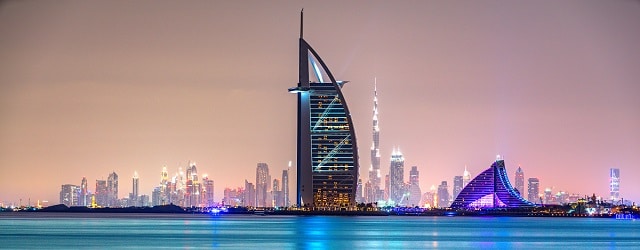The MENA region is rapidly minting millionaires, but the Covid pandemic and a generational shift in ownership of wealth promise changes in how it’s invested and in what.

The Middle East is a place where fortunes are made—at least, it was until recently. Between 2014 and 2019, the number of millionaires, multimillionaires and even billionaires living in the Middle East rose by over 40%, well above the global average, according to Knight Frank’s 2020 Wealth Report.
Another segment is on the rise as well: the “merely” affluent. According to Boston Consulting Group (BCG), by 2023 the Middle East will be home to an additional 240,000 individuals holding between $250,000 and $1 million: a 5.3% increase from 2018. BCG reported in June 2019 that, thanks to these advances, that the region’s overall wealth was projected to jump 6.9% to $5.2 trillion in the same period, compared with 5.4% for North America and 3.9% for Western Europe.
But that was before Covid-19. While the virus is paralyzing the global economy, MENA countries, many of which pump revenues directly from hydrocarbon reserves, must cope additionally with an unprecedented oil crisis. In April, the price of Brent crude fell below $20, its lowest level since 2002.
This isn’t good news for Middle Eastern fortunes. According to Forbes’ “World’s Richest Arabs 2020” list, Arab billionaires’ total wealth has fallen 19.4% since last year. This trend has likely accelerated since Forbes finalized its report in March, before most Covid-19 lockdown measures were in place.
These changes will accompany another, highly anticipated shift. In a part of the world where the majority of businesses are family owned, $1 trillion is expected to trickle down to the next generation in the next decade. These affluent heirs are very different from their parents: tech savvy, more prone to individual entrepreneurship and hungry for new ideas.
For private banks and wealth managers, this changing of the guard is full of opportunities and challenges. According to Ernst & Young, 23% of Middle Eastern clients plan to move their assets out of their current wealth management firms in the next three years, while 50% have already done so over the past three years.
While most Arab family fortunes were typically built on oil money that the families then invested in local markets, with a preference for real estate, the new generation is looking for a change of portfolio.
“We expect the younger generation to invest inherited wealth into more non-oil related businesses such as retail, e-commerce and services,” says Abdulnasir Al Raisi, deputy general manager for Premier Banking at Bank Muscat, Oman’s biggest bank. Younger clients are more likely to invest in “technology-related projects and funds. They also prefer asset classes which provide liquidity and regular cash flows.”
The Arab world is not immune to the global trend, especially among younger investors, toward socially responsible investments either—favoring portfolios tailored to women, for example, and local specificities such as Islamic finance.
A Highly Competitive Market
Next-generation customers are undeniably tech savvy. They expect a seamless, real-time private banking experience and often prefer to transact business via an app rather than meet physically with an adviser. The recent lockdown in most countries will only accelerate the digital transition.
“The coronavirus forced us to break through our current operational processes to become more efficient and digitally led,” says Rudy Guillemyn, head of elite and private banking at First Abu Dhabi Bank, the biggest in the United Arab Emirates. “This brings the opportunity to create innovations now that can be maintained after the crisis.”
Technology in turn has opened wealth management to competition from nonbanking actors. According to Magnitt, a UAE-based research network, wealth management attracted 16% of all 2019 fintech investment deals in the MENA region and is one of the most promising areas for financial innovation.
While MENA banks struggle to survive the combined effects of Covid-19 and falling oil prices, fintech startups are on the rise. “We are built for remote work,” says Mark Chahwan, CEO of Sarwa, a UAE-based digital investment platform. “Robo-advisers are thriving in this environment. We are actually seeing a massive surge in demand and exponential growth.” Chahwan says that in April 2020 Sarwa had three times the number of clients as in April 2019.
Despite current crisis in the region—and indeed, the world—the Middle East’s boom in private wealth will likely continue once the smoke clears. How much of it continues to be managed by traditional private banks, however, remains to be seen.
|
|
Middle East |
North America |
Europe |
Asia |
Global |
| High Net Worth Individuals (HNWI) ≥ $1 million | 42% | 15% | 22% | 55% | 27% |
| Ultrahigh Net Worth Individuals (UHNWI) ≥ $30 million | 41% | 36% | 14% | 49% | 29% |
| Billionaires | 44% | 22% | 22% | 72% | 30% |
Source: Knight Frank, The Wealth Report, 2020.



